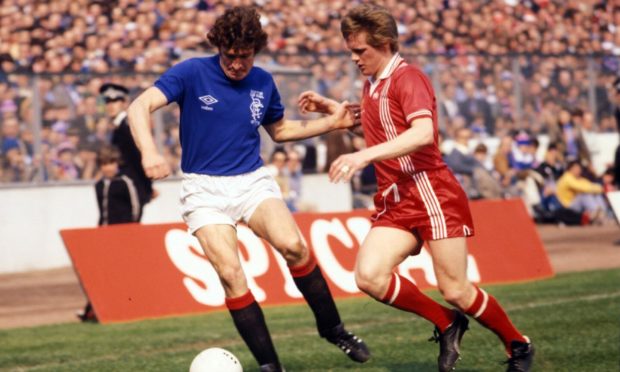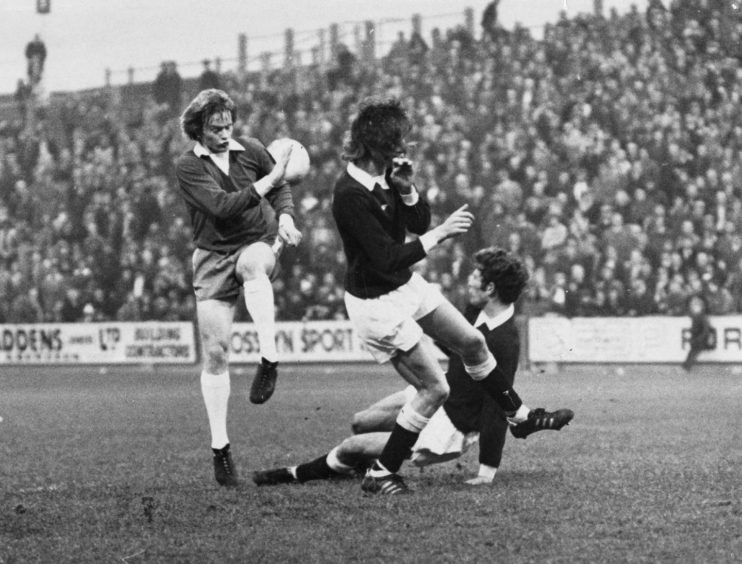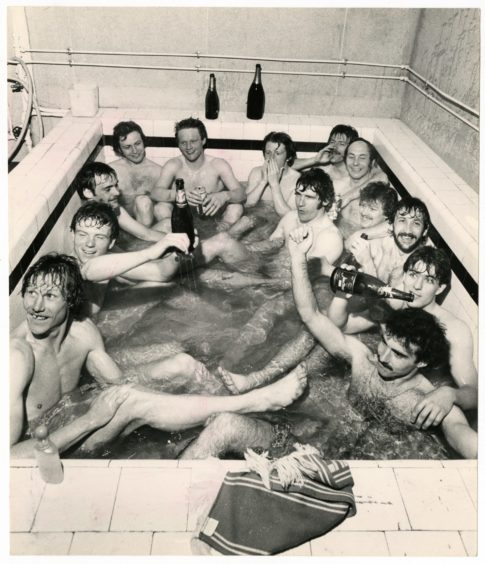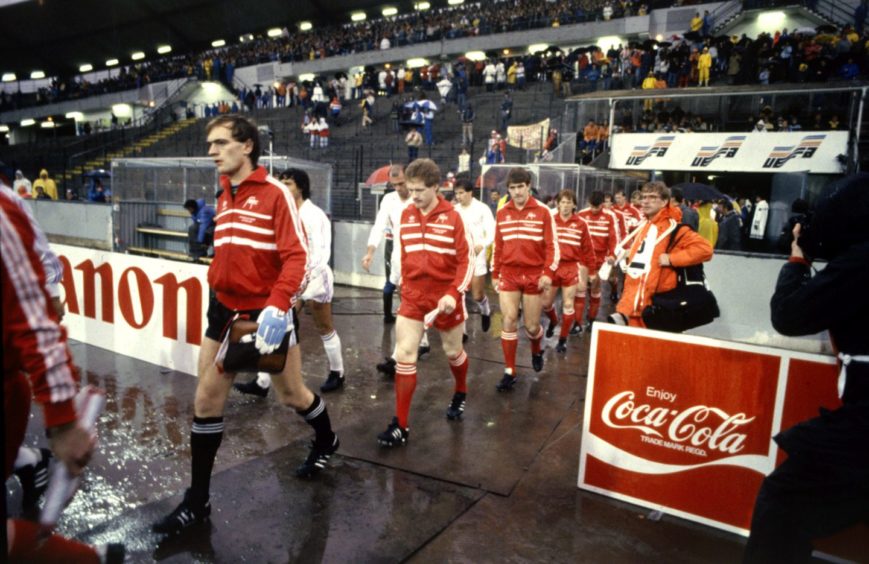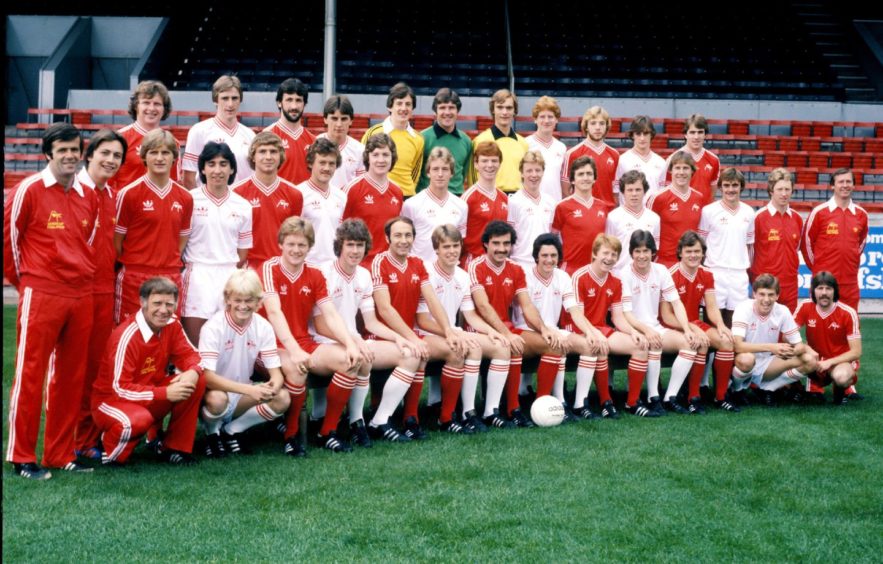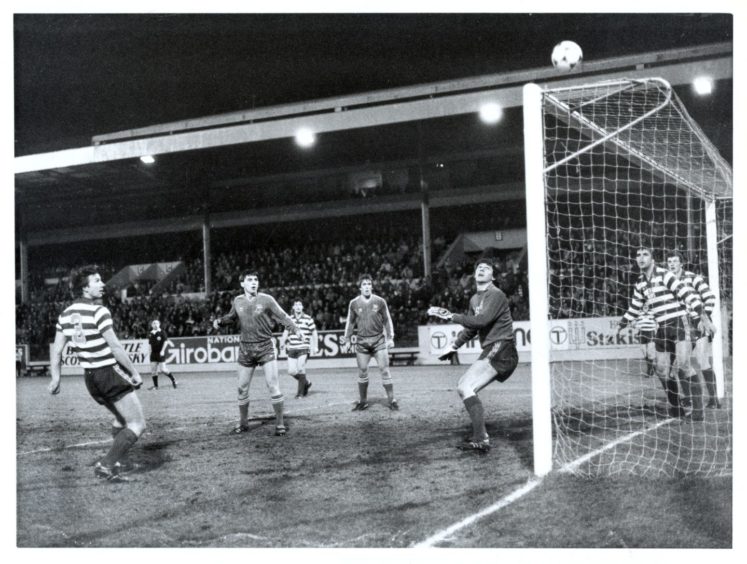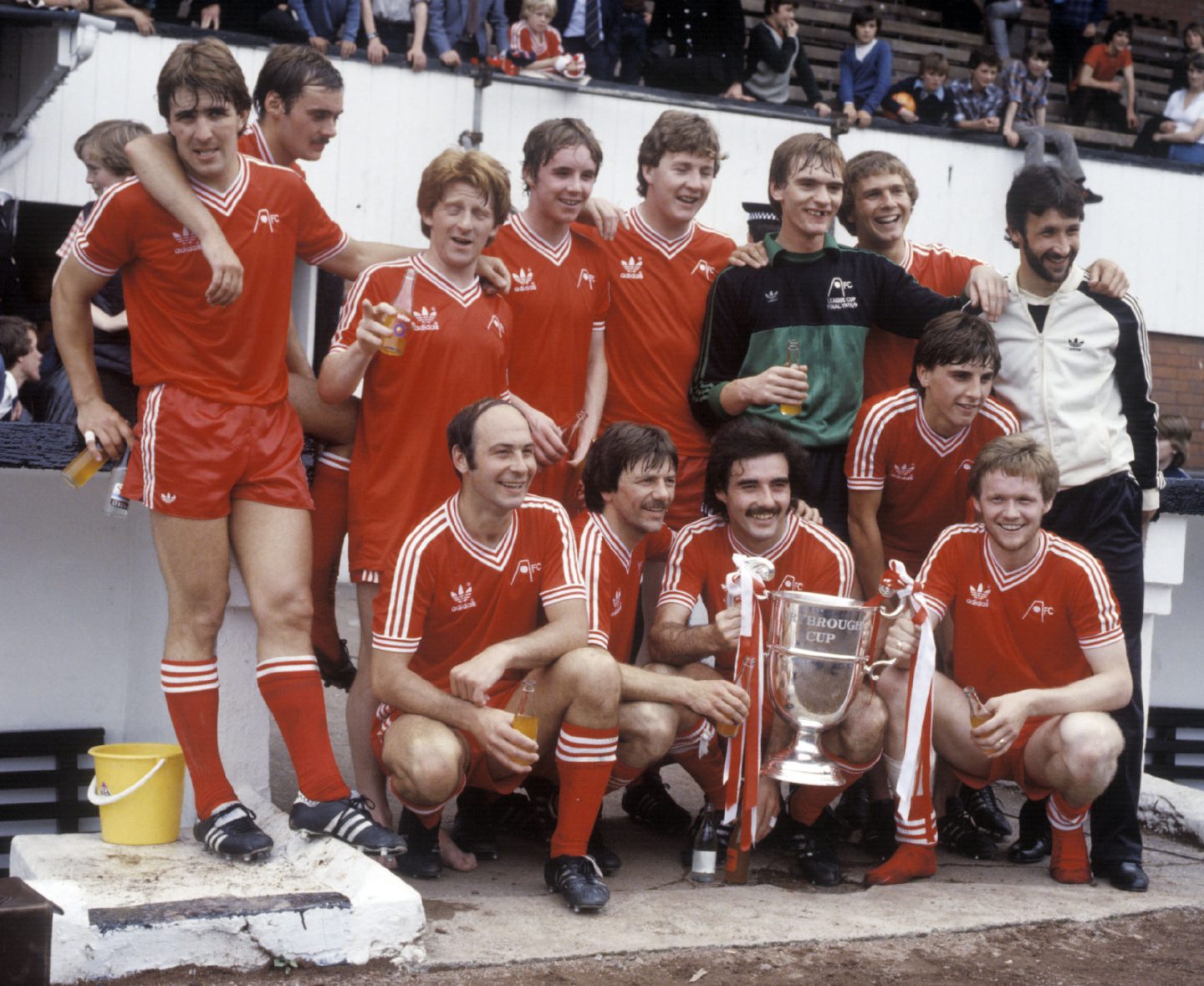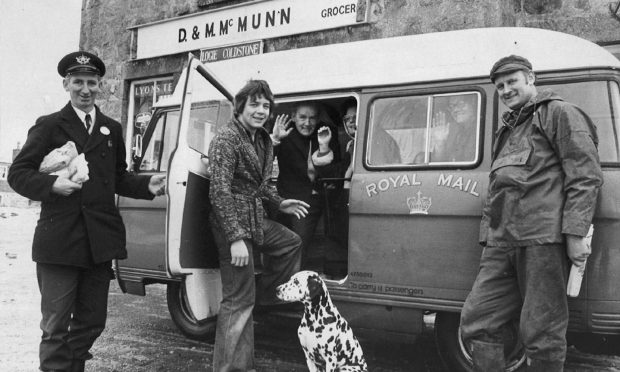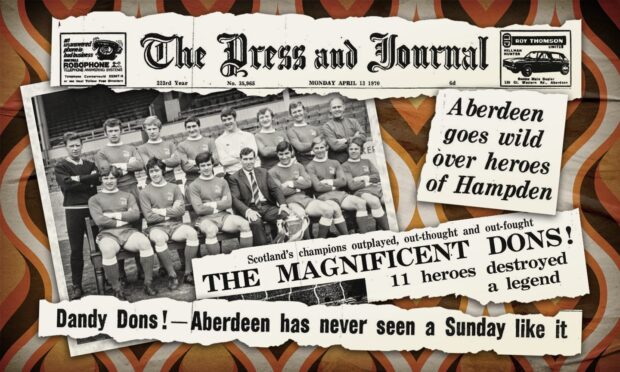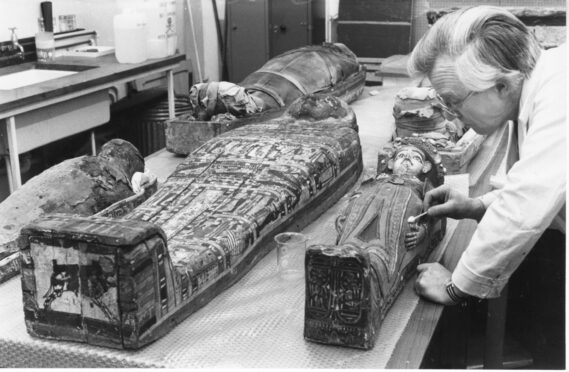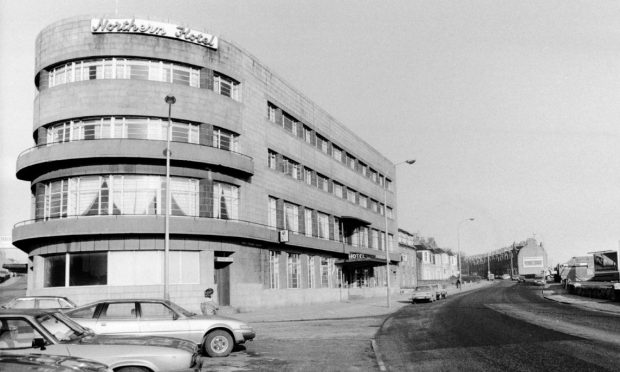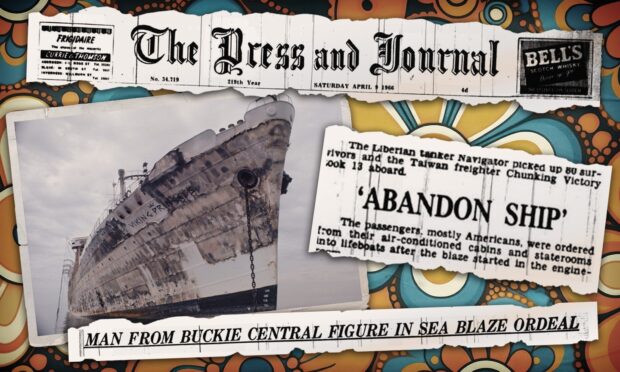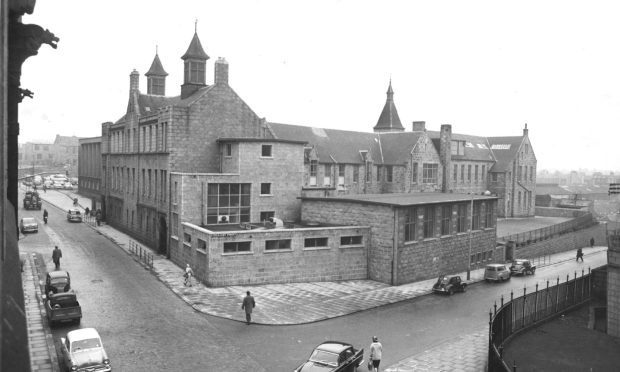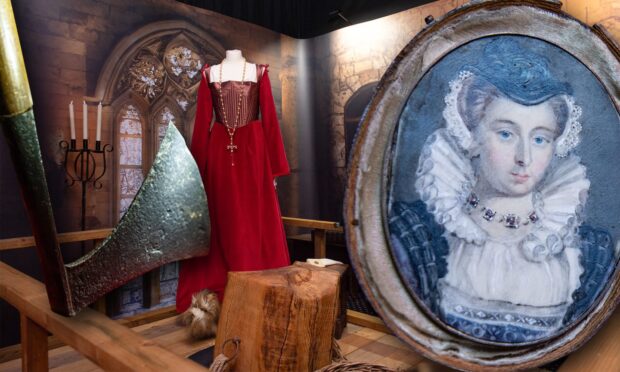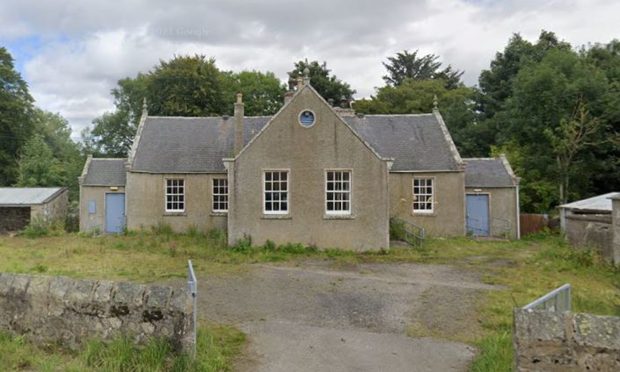It was one of the worst challenges John McMaster ever faced in his career – and that’s saying something, because the Aberdeen star was used to dealing with defenders who kicked first and asked questions later.
The newspapers of the time – in September 1980 – were equally scathing about the juddering challenge on the Dons midfielder by Rangers black sheep Willie Johnston, and, in the immediate aftermath, as the player lay prostrate on the turf, while his teammates formed a circle around him, there were grave fears about his condition.
It was even reported later that McMaster was given the kiss of life by Doug Rougvie or the Pittodrie physio, Roland Arnott, but the story wasn’t true.
What was undeniable was that the steely Don was in bad shape, his chest had borne the brunt of a mound of aluminium studs, he was struggling for breath, and Johnston was the perpetrator.
The latter might have been nicknamed “Bud”, but that didn’t gloss over his appalling disciplinary record – this was the 13th red card of his career at a time when they weren’t doled out lightly by referees – and he was already notorious in the game after being sent home from the 1978 World Cup in disgrace after failing a drugs test.
Yet it was just one of a series of incidents that made it a minor miracle that McMaster was fit enough to be part of the famous Gothenburg Greats collective.
McMaster is a hardy individual who thrived at Pittodrie while stacking up more than 300 appearances for the club.
He has nothing but admiration for the fashion in which Alex Ferguson transformed the mindset at Aberdeen, but also speaks fondly of the influence of Billy McNeill, who signed the likes of Steve Archibald and Gordon Strachan during his brief tenure in the north east.
Yet, these were far from his mind on September 3 1980 when he and his colleagues travelled to Glasgow for a typically visceral encounter with Rangers.
Some people might argue that the rancour and acrimony between these two clubs began in earnest after Neil Simpson’s infamous tackle on Ian Durrant in 1988, but that was merely the latest chapter in an inglorious saga that had stretched back considerably longer.
Johnston, for his part, had just returned from a spell at West Bromwich Albion and was perhaps trying to demonstrate his commitment to Ibrox manager John Greig.
But his actions were inexcusable and his subsequent claim that he had mistaken McMaster for Willie Miller was greeted with widespread derision.
The former Don recalled: “Willie was one of my heroes when I was growing up, but that counted for nothing when we came up against each other in that match.
“It was a hard battle and you didn’t expect anybody to go easy on you, but this was madness.
“I had slid in and won the ball, but Willie jumped up on me and made sure he used me as a trampoline.
“He landed on my chest, just below my throat, and all I knew was that I was lying on the ground and the pain in my chest was agony.
‘I couldn’t catch my breath for a while’
“The play stopped and the Aberdeen boys stood around me while the trainer came on. As you might expect, the referee didn’t need much time to deal with Willie – but, even after he sent him off, I was having some trouble breathing.
“Maybe that explains why a lot of newspapers carried accounts in the days ahead of how I had been ‘given the kiss of life’, but it never happened.
“I told the press afterwards that I felt as if I was going to die because I could not catch my breath for a while; that’s all. But I am not downplaying the impact – it was a really nasty incident.”
There was a media backlash against Johnston with some journalists suggesting Rangers should have handed him his P45.
McMaster didn’t go that far, but was astonished when he heard the claims that the Ibrox man had supposedly been gunning for Miller.
As he said: “It was incredible and I burst out laughing. How on earth could you mix us up?
“At that time, Willie had the best black perm in the Aberdeen dressing-room, whereas I was a strawberry blonde, so there was no mistaking the two of us.
“But this was in another time and you had to be able to deal with these sort of things. It wasn’t pleasant, and Rangers won the match 1-0, even though they were down to 10 men, but we learned from these experiences and they toughened us up.
“I was back playing football within a few days. But what happened just a few weeks later against Liverpool (in October 1980) was totally different. It almost ended my career.”
There were precious few positives for the Scots from their European Cup tussles with Liverpool in October and November.
They were beaten in both ties, 1-0 at Pittodrie by a superb goal from Terry McDermott, and thrashed 4-0 at Anfield, with Kenny Dalglish orchestrating mayhem for the hosts and exposing the gulf between the sides.
However, by that stage, McMaster had other more urgent matters on his mind. During the first leg, he had suffered a grievous injury following a challenge from Ray Kennedy, who left his rival writhing in agony even as the home supporters vented their fury.
As he told me: “The doctors discovered my medial ligament was gone.”
And so, as he later discovered, was his chance of winning a cherished Scotland cap.
He added: “We realised that Liverpool has class through their team, but we had started well in Europe by defeating Austria Vienna and this was a step up for us.
“It wasn’t a good few days, to be honest. Jock Stein, who was the Scotland manager, had contacted Alex Ferguson to say he was going to pick me for the national squad and that would have been a massive honour for me, because it’s something we all dream about.
“But Fergie – I only found this out two or three years ago – asked Jock if he would wait until after the Liverpool game before telling me the news, so that I could concentrate fully on what was going to be a massive European night for us.
‘My studs stayed in the ground’
“Well, it all went wrong pretty quickly. During that game, I went on a diagonal run across the park and I was nearing the 18-yard box at the Beach End, but I overstretched in an attempt to control the ball, and Ray Kennedy smashed me across the outside of my right knee. My studs stayed in the ground, but my leg jerked to the left.
“Within a few minutes, the knee started to feel heavy and I couldn’t move it and I realised pretty quickly that this was serious. And it was.
“When I went to hospital, the surgeon told me it was bad and that I would be out of football for a long period, which was worrying, because I had a family to look after, but Fergie stepped in immediately and told me the club would look after us.
“The way he treated me throughout that (ordeal) spoke volumes about the man and it was a big weight off my mind.
“Everybody would benefit from having somebody like Sir Alex in their camp and he looked after me, encouraged me to do my coaching badges, and, although I was out for more than a year, he was constantly in touch.
I’ll never forget what he did for me.”
John McMaster on Sir Alex Ferguson
“What I didn’t know at the time was that, after the operation on my knee, the surgeon had gone to see the boss and had told him that I would never play again.
“And yet Fergie asked the surgeon not to say anything to me. How did he work that out? I’ve always wondered.
“The boss knew me, as well as all the other lads, inside out, but he was insistent that the surgeon did not say a word to me and I was allowed to get on with my recuperation and I was still included in the team squads.
“Looking back, I am actually really proud of Sir Alex and how he helped me because I might never have played again if I had known what the surgeon had said to him.
“I know he has the reputation of being a hard man, but he cares about people, he realises that families – and a football club is one extended family, in many ways – have to stick together through good times and bad times and he couldn’t have done more to help me and (his wife) Katie and the kids.
“I’ll never forget what he did for me.”
McMaster is currently working on a book about his life, both in football and while working in different industrial landscapes.
It will extend from growing up in Greenock to his involvement with the Gothenburg Greats in 1983 and one suspects he won’t be pulling his punches.
As he said: “I want to make sure it accurately reflects what I’ve learned along the way from people such as Fergie, who turned a losers’ mentality into a winning formula.”
Oh and, by the way, he’s still waiting on a get-well card from Ray Kennedy!
EYEWITNESS: Dougie Bell was signed twice by Fergie and dedicates new book to beloved wife Hazel
